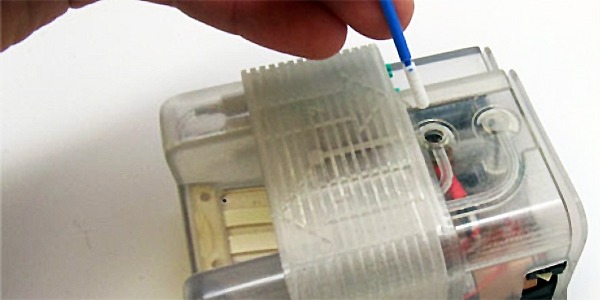Photo: A prototype device takes a nasal swab and, in minutes, shows a readout for pathogen DNA or RNA on paper strips. Courtesy of Yager lab
An article published online March 25 in Scientific American reports on efforts by UW Bioengineering Professor Paul Yager and other researchers to develop paper-based disease diagnostics technology. The tests being developed by Dr. Yager and others offer a fast, inexpensive, highly sensitive and simple testing platform that anyone can use, anywhere, without needing access to power, running water or special equipment. The devices could lead to faster treatment, limit spread of infectious disease, save hundreds of thousands of lives in the developing world, and reduce the cost of health care in developed countries by allowing home-based testing.
The technology emulates the capabilities of a sophisticated diagnostics lab on paper. These “mini-laboratories” can separate, mix and filter fluids, and perform the steps of lab-based PCR tests, such as breaking apart cells, extracting nucleic acids and making copies of the strands for pathogen detction. The tests can be heated via batteries or chemicals such as those used in hand-warmers, and provide easy-to-read results in as little as 20 minutes. If used in the home or other remote location, a patient could simply take a photo of the results and send to a clinician for diagnosis.
Dr. Yager’s current work, supported by NIH and DARPA, combines the inexpensive paper-based test technology with cell phones for rapid diagnosis and connectivity with the health care system. The technology being developed by his group could diagnose a wide range of diseases, including MRSA, influenza, HIV, malaria or Ebola, and they have recently started working on a test for the Zika virus.



